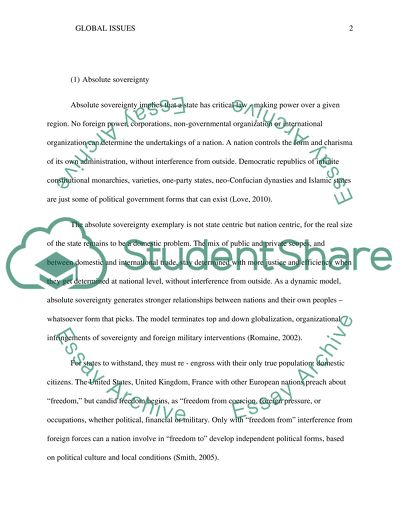Cite this document
(“Six Global Issues Essay Example | Topics and Well Written Essays - 2000 words”, n.d.)
Retrieved from https://studentshare.org/history/1450660-6-topics-on-various-global-issues
Retrieved from https://studentshare.org/history/1450660-6-topics-on-various-global-issues
(Six Global Issues Essay Example | Topics and Well Written Essays - 2000 Words)
https://studentshare.org/history/1450660-6-topics-on-various-global-issues.
https://studentshare.org/history/1450660-6-topics-on-various-global-issues.
“Six Global Issues Essay Example | Topics and Well Written Essays - 2000 Words”, n.d. https://studentshare.org/history/1450660-6-topics-on-various-global-issues.


